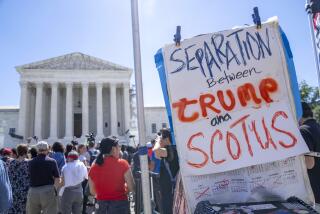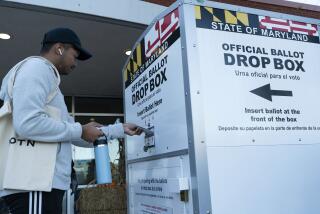Miranda Warning Impregnable to Federal Law, High Court Told
- Share via
WASHINGTON — A federal law that limits the Supreme Court’s famous Miranda decision and makes it easier to use criminal suspects’ confessions against them cannot lawfully be enforced, the Clinton administration argued Monday.
In a written brief filed with the Supreme Court, Justice Department lawyers said the 1966 Miranda decision “is of constitutional dimension” and “cannot be superseded merely by legislation.”
The so-called Miranda warnings are familiar to generations of Americans who have viewed countless arrests in movies and on TV: “You have the right to remain silent. Anything you say may be used against you.”
Police have been giving the warnings before questioning suspects ever since the ruling in Miranda vs. Arizona said they had to.
A law passed after the 1966 decision essentially reversed it, but the law long has been ignored by the Justice Department and, until recently, by the courts.
Civil libertarians say the warnings protect individuals’ rights, but some critics say the requirement that police give the warnings exacts a heavy toll, seriously harming public safety.
In an unusual move, Atty. Gen. Janet Reno joined other Justice Department officials in signing Monday’s brief.
The Supreme Court has not said whether it will review a case in which a Maryland man’s bank-robbery conviction raises an important question about the Miranda ruling’s future vitality. The case is Dickerson vs. U.S., 99-5525.
More to Read
Sign up for Essential California
The most important California stories and recommendations in your inbox every morning.
You may occasionally receive promotional content from the Los Angeles Times.













